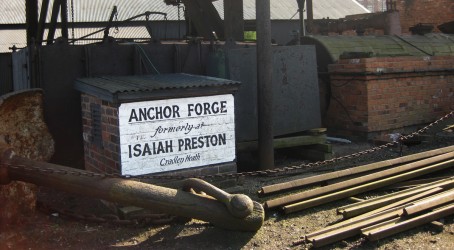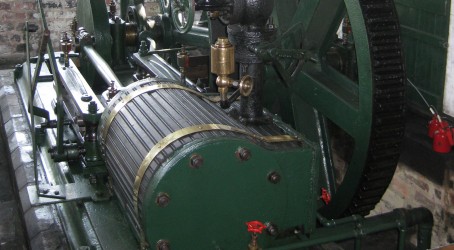Museums
Canals, trams, trolley-buses, a coalmine, old shops, a fairground – all of these get specialised museums of their own. But there can’t be many places that bring them all together and set them in an urban context that looks and feels about a century old.
The Black Country Living Museum is on a sprawling site in Dudley and for the past 30 years it’s been assembling a collection of “everyday” items and experiences from the local area.


So what makes this different from a host of local museums and visitor attractions across the land? You get some clue when you drive up to the museum: looming over the entrance is a tall building proclaiming itself to be the “Rolfe Street Baths”. Rolfe Street? That’s in Smethwick, not Dudley, surely?
Not entirely, it isn’t. The baths have been taken apart and relocated on the museum site, and they’re not alone. Step outside the indoor museum and you find buildings of many types that have been rebuilt or replicated. There’s a 1920s garage offering to service your Star or Clyno car, both local Wolverhampton makes. The Anchor Forge used to be at Cradley Heath, the rolling mill is from Oldbury, and the small brick cinema comes from Brierley Hill. Across the site there are examples of urban and industrial buildings, most of them operational. Where else would you find chain-making, lime kilns, “oliversmithing” and oddwork?
It’s the scale that makes this different – and the detail too. Inside the grocer’s shop are food and cleaning materials in real pre-war packaging. In the bakery, a former industrial chemist comes in most days to spend four hours stoking up his oven to bake loaves that will be stale tomorrow, as bread always was 100 years ago.
The newly opened gents’ outfitters, with its display of homburgs and plus-fours, will be joined by a shop that will deal in that new-fangled gadget of the age, the wireless set. “Costumed” characters are on hand to supply the detail with knowledge and enthusiasm.
Much of what’s on show is gloriously mundane, an extraordinary collection of the ordinary. The date hovers somewhere between 1890 and 1939 – close enough to be broadly familiar, but far enough back to be out of the line of direct experience of most visitors. The pensioner party on the day I went seemed to be indulging themselves in nostalgic reverie, some of it in the pub’s backyard, but the school party had screamed themselves into high excitement in the coalmine.
The Black Country Living Museum isn’t cheap: it’s £13.20 for an adult ticket, and a family pass will set you back £35. Canal rides to the famous Dudley tunnel and some of the fairground attractions are extras.
But it’s a full day out and a genuinely gritty experience. The past isn’t all chintz and National Trust. Fore more info see www.bclm.co.uk.